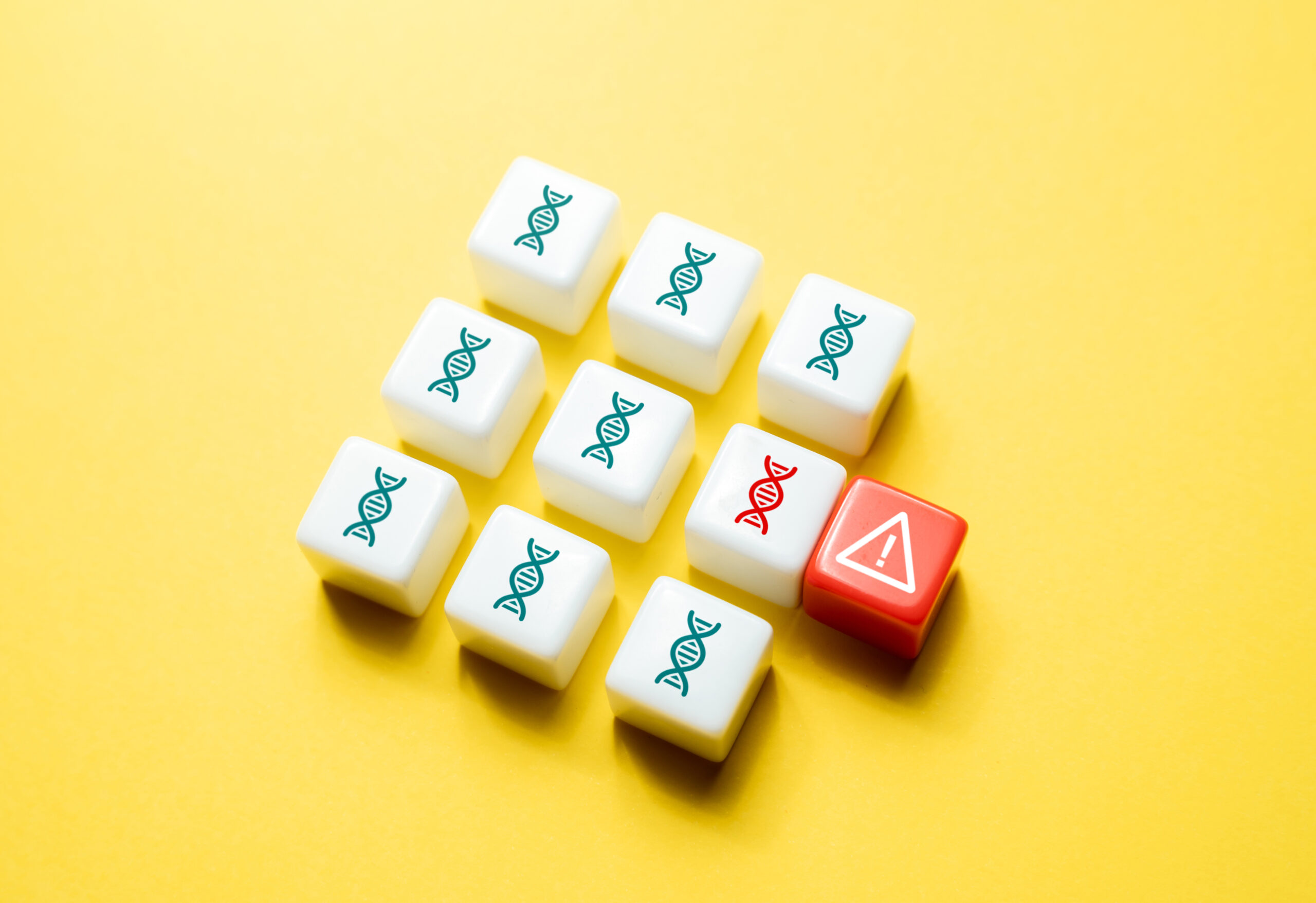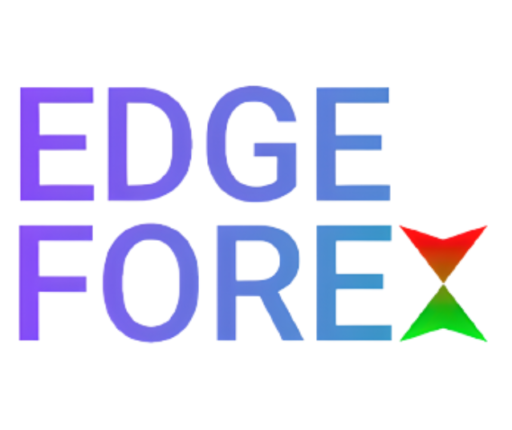
Introduction
In an era marked by relentless scientific progress, the world of finance stands witness to a unique phenomenon – the interplay between global genomics research advancements and forex markets. As nations invest heavily in healthcare and biotechnology, a ripple effect is felt in the world of currency trading. This article embarks on a comprehensive investigation into how breakthroughs in genomic research and biotechnology, particularly in leading countries, influence forex markets, with a focus on healthcare investment and biotech trade.
Understanding Forex Markets
Forex markets, or foreign exchange markets, represent a dynamic and intricate financial ecosystem where currencies are bought and sold. This global marketplace plays a pivotal role in shaping the modern financial landscape and has far-reaching implications for economies, businesses, and investors worldwide.
1. Currency Pairs:
- At the heart of forex trading lies the exchange of one currency for another, and this transaction occurs in pairs. In every forex trade, two currencies are involved, forming a currency pair. The first currency in the pair is referred to as the “base currency,” while the second is the “quote currency.” The exchange rate between these two currencies reflects how much of the quote currency is needed to purchase one unit of the base currency. For example, in the EUR/USD currency pair, the Euro (EUR) is the base currency, and the U.S. Dollar (USD) is the quote currency.
2. Market Size:
- The enormity of the forex market is staggering. Daily trading volumes in the forex market surpass trillions of dollars, dwarfing other financial markets. This liquidity is a testament to the vast number of participants involved, which include central banks, commercial banks, hedge funds, multinational corporations, and individual retail traders. Such high liquidity ensures that market participants can buy and sell currencies with ease, reducing the risk of price manipulation and offering traders ample opportunities.
3. Global Significance:
- Forex markets serve as a crucial barometer for assessing the health of the global economy. Movements in currency exchange rates provide valuable insights into international trade, investment sentiment, and the overall economic well-being of countries. Governments and financial institutions worldwide closely monitor forex market data to inform their policies and decision-making. For instance, a strengthening currency may indicate economic stability, while a weakening currency could signal underlying economic challenges.

4. Exchange Rate Determinants:
- Several factors influence exchange rates in forex markets, including interest rates, economic indicators, geopolitical events, and market sentiment. Central banks play a pivotal role in setting interest rates, which can significantly impact a country’s currency value. Economic indicators such as GDP growth, employment data, and inflation rates are closely watched by traders, as they provide insights into a country’s economic health. Geopolitical events, such as elections, trade disputes, and geopolitical tensions, can lead to abrupt currency movements. Market sentiment, influenced by news and investor perceptions, also plays a critical role in short-term price fluctuations.
5. Forex Market Participants:
- Forex market participants can be categorized into different groups based on their objectives and trading styles:
- Central Banks: Central banks intervene in the forex market to stabilize their national currencies or achieve specific monetary policy goals.
- Commercial Banks: Banks engage in forex trading to facilitate international trade for clients, hedge currency risks, and profit from exchange rate movements.
- Hedge Funds: Hedge funds aim to generate returns by speculating on currency movements, often employing sophisticated trading strategies.
- Multinational Corporations: Companies involved in international trade use forex markets to manage currency risk associated with cross-border transactions.
- Retail Traders: Individual investors participate in forex trading through online platforms, seeking profit from currency price changes.
6. Trading Hours:
- The forex market operates 24 hours a day, five days a week, across different global financial centers, creating a continuous trading cycle. Major trading sessions include the Asian, European, and North American sessions. The overlap of these sessions provides increased liquidity and trading opportunities, as different market participants from around the world actively engage in currency trading.
In conclusion, forex markets are not merely a platform for currency exchange; they are a reflection of the global economic landscape and a vital component of the international financial system. The intricate interplay of various factors and the sheer scale of trading activity make forex markets a captivating arena for traders, investors, and analysts alike. Understanding the dynamics of forex markets is essential for anyone seeking to navigate the complexities of international finance and economics.
The Genomics Revolution
1. Unveiling the Genomic Revolution:
The Genomic Revolution represents a monumental shift in scientific and medical paradigms. This epochal transformation is driven by advancements in genomic research and biotechnology, fundamentally altering our understanding of genetics, healthcare, and its myriad applications. Key components of this revolution include:
2. Genomics Defined:
Genomics, at its core, involves the comprehensive study of an organism’s DNA, encompassing the entirety of its genetic material. This intricate examination goes beyond merely deciphering the genetic code; it extends to understanding how genes function, interact, and influence an individual’s traits and susceptibility to diseases.
3. Global Investments in Genomics:
Nations across the globe are making substantial investments in genomics, recognizing its potential to reshape healthcare, agriculture, environmental science, and beyond. These investments support research, infrastructure, and technological advancements that propel genomics forward.
4. Deciphering Genetic Makeup:
Central to the Genomic Revolution is the ability to unravel the genetic makeup of individuals. Through techniques like DNA sequencing, scientists can read and decode the genetic information contained within an organism’s DNA. This knowledge offers insights into an individual’s unique genetic profile, allowing for a deeper understanding of their predisposition to certain diseases and health conditions.
5. Personalized Medicine:
One of the most profound implications of genomics is the advent of personalized medicine. By tailoring medical treatments and interventions based on an individual’s genetic profile, healthcare providers can optimize therapeutic outcomes and reduce adverse effects. Personalized medicine is revolutionizing cancer treatment, drug development, and disease prevention.
6. Disease Prediction and Prevention:
Genomic research enables early disease prediction and prevention strategies. Genetic markers associated with various illnesses can be identified, allowing for targeted interventions and preventive measures. For example, genetic testing can identify individuals at a higher risk of developing conditions like heart disease, diabetes, or certain types of cancer.
7. Innovative Biotechnological Applications:
Beyond healthcare, genomics has far-reaching applications in agriculture, environmental science, and biotechnology. It empowers researchers to enhance crop yields, develop drought-resistant plants, and address environmental challenges by understanding the genetic makeup of ecosystems. Genomic techniques are also driving advancements in synthetic biology and gene editing, with the potential to reshape industries and create sustainable solutions.
8. Ethical and Regulatory Considerations:
The Genomic Revolution raises ethical and regulatory questions surrounding issues like data privacy, genetic discrimination, and the responsible use of genetic information. Governments and organizations worldwide are grappling with the need for robust ethical frameworks and regulations to guide the responsible implementation of genomics.
9. Collaborative Global Efforts:
The collaborative nature of genomics research is a hallmark of this revolution. International initiatives and collaborations facilitate data sharing and collaboration among scientists and institutions globally, accelerating discoveries and progress.
In conclusion, the Genomic Revolution represents a seismic shift in our understanding of genetics and its multifaceted applications. As countries invest heavily in genomics, the possibilities for groundbreaking discoveries and transformative advancements in healthcare, agriculture, and biotechnology are boundless. This revolution not only holds the promise of personalized medicine but also offers innovative solutions to some of the world’s most pressing challenges, ushering in an era of unparalleled scientific and medical progress. However, it is essential to navigate the ethical and regulatory aspects with care to ensure that the benefits of genomics are realized responsibly and equitably.

Impact on Healthcare Investment
1. Significance of Healthcare Investment:
Healthcare investment plays a pivotal role in shaping a country’s economic landscape and influencing its currency’s performance in forex markets. As nations allocate substantial resources to advancements in genomics and biotechnology, the healthcare sector becomes a magnet for both domestic and foreign investors.
2. Attracting Investor Attention:
When a country known for its cutting-edge genomics research achieves a significant breakthrough, it captures not only scientific attention but also the interest of investors worldwide. These breakthroughs can encompass various aspects of healthcare, such as the development of innovative medical treatments, breakthroughs in genomics research, or advancements in biotechnological applications.
3. Confidence Boost for Investors:
Major accomplishments in genomics and healthcare often instill confidence in investors. The perception that a country is at the forefront of groundbreaking research and development can lead to increased investor optimism. This optimism, in turn, can drive investments into the country’s healthcare sector.
4. Currency Strengthening:
As foreign and domestic investors pour capital into a country’s healthcare and biotech companies, there is a resultant increase in demand for that nation’s currency. Investors need the local currency to invest in these companies, which drives up its value in the forex market. This heightened demand can lead to a stronger exchange rate for the nation’s currency compared to other currencies.
5. Forex Market Response:
The forex market is highly sensitive to such developments. As news of significant genomics or healthcare advancements breaks, forex traders swiftly react by adjusting their currency positions. If the news is positive and bolsters investor confidence, it can lead to an immediate appreciation of the country’s currency.
6. Global Investment Flows:
Genomic breakthroughs and healthcare investment also attract foreign direct investment (FDI). Foreign investors seeking opportunities in the healthcare sector, including biotech companies and pharmaceutical firms, may invest directly in the country. This influx of foreign capital further amplifies the demand for the nation’s currency in the forex market.
7. Regulatory Impact:
Conversely, setbacks or regulatory issues in the healthcare or biotech sector can have adverse effects on the currency’s value. Regulatory challenges, such as delays in approvals or adverse safety findings, can erode investor confidence and lead to currency depreciation.
8. Long-term Effects:
It’s important to note that the impact of healthcare investment on a nation’s currency can have both short-term and long-term effects. In the short term, currency values may experience rapid fluctuations in response to news and events. In the long term, sustained healthcare investment can contribute to a country’s economic growth and stability, which can positively influence its currency over time.
In conclusion, healthcare investment is a critical factor in the forex market’s response to genomic advancements. The allocation of substantial resources to genomics and biotechnology can attract investors, boost investor confidence, and lead to a stronger national currency. Conversely, setbacks or regulatory issues can result in fluctuations in currency values. The forex market, being highly sensitive to news and developments, reflects these changes swiftly, making it an area of keen interest for traders and investors looking to capitalize on the interplay between healthcare investment and currency movements.
Biotech Trade and Currency Fluctuations

1. Biotech Trade Dynamics:
Biotech companies engaged in pioneering research and development often have their stocks traded on global stock exchanges. These companies are at the forefront of genomics and biotechnology, and their stock prices are closely monitored by investors worldwide.
2. Stock Price Volatility:
Biotech stocks are known for their significant price volatility. This volatility is driven by a variety of factors, including clinical trial results, regulatory approvals, pipeline developments, and, most importantly, breakthrough discoveries in genomics and biotechnology. Positive news or significant advancements can lead to rapid increases in stock prices.
3. Impact on Currency Values:
The relationship between biotech trade and currency values is intricate and can be illustrated through the following scenarios:
- Scenario 1 – Positive Breakthrough: Consider a biotech firm headquartered in a leading genomics research nation. When this company achieves a groundbreaking discovery, it generates tremendous interest and enthusiasm among investors. As the stock price of this biotech firm surges, foreign investors, eager to capitalize on the potential, may rush to purchase shares. To do so, they need to acquire the national currency where the company is based. This heightened demand for the local currency can lead to a stronger exchange rate.
- Scenario 2 – Setbacks or Negative News: Conversely, setbacks or adverse developments in the biotech sector can have adverse effects. Negative news such as clinical trial failures, regulatory hurdles, or safety concerns can cause sharp declines in biotech stock prices. When investors lose confidence in the sector, they may seek alternative investments, and this can result in a decreased demand for the national currency. A weaker currency may be observed as a consequence.
4. Forex Market Response:
The forex market is highly responsive to such fluctuations in biotech stock prices. Forex traders and investors closely monitor developments in the biotech sector as they occur. Positive news can lead to immediate appreciation of the national currency, while negative news can prompt depreciation.
5. Global Investor Participation:
It’s important to note that biotech trade often involves global investors. As news of significant genomics and biotechnology breakthroughs spreads, international investors from various countries may participate in the trading of biotech stocks. This diverse group of investors contributes to the global demand for the national currency associated with the biotech company.
6. Regulatory Impact:
Regulatory decisions, such as drug approvals or clinical trial results, can have a substantial impact on biotech stock prices. Positive regulatory outcomes can propel stock prices upward, while regulatory setbacks can lead to sharp declines. These events can, in turn, affect the country’s currency value, depending on investor sentiment.
7. Long-term Implications:
The impact of biotech trade on currency fluctuations can have both short-term and long-term implications. While short-term movements are often driven by immediate market reactions, the sustained success or challenges faced by the biotech sector can influence a country’s economic outlook and, consequently, its currency value over the long term.
In conclusion, biotech trade is an integral component of the forex market’s response to genomic research advancements. The volatile nature of biotech stocks, coupled with the global investor participation, makes them a significant factor in currency movements. Positive breakthroughs can lead to stronger currencies, while setbacks can weaken them. The forex market’s sensitivity to developments in the biotech sector underscores the importance of monitoring these factors for traders and investors seeking opportunities in the currency markets.
Case Studies
1. The United States:
- The United States is a global leader in genomics and biotechnology, with a thriving sector comprising major pharmaceutical and biotech companies, research institutions, and innovative startups.
- Positive developments in the U.S. genomics sector have a profound impact on the forex market. When American companies achieve significant breakthroughs or milestones in genomics, it attracts substantial interest from both domestic and foreign investors.
- Increased investor confidence and capital inflow can lead to higher demand for the U.S. dollar. Foreign investors may invest in U.S. biotech firms or pharmaceutical companies, necessitating the purchase of U.S. dollars to participate in these investments.
- The strengthening of the U.S. dollar, in turn, reinforces its status as a global reserve currency. It can also lead to favorable exchange rates against other currencies in the forex market.
2. China:
- China has made substantial investments in genomics research and biotechnology in recent years. The Chinese biotech sector has witnessed rapid growth and innovation, driven by both government initiatives and private enterprises.
- Breakthroughs in genomics by Chinese biotech companies can influence the value of the Chinese yuan (CNY) in forex markets. Positive developments can attract investor attention, potentially leading to increased demand for the Chinese currency.
- As China continues to expand its presence in the global biotech landscape, the performance of its biotech companies can impact the CNY’s exchange rate, particularly against major currencies like the U.S. dollar and the Euro.
3. Switzerland:
- Switzerland is renowned for its excellence in the pharmaceutical and biotech industries, housing several prominent companies engaged in genomics and biotechnology research.
- Advances in genomics have a direct impact on the Swiss franc (CHF)’s exchange rate. Positive developments in Swiss biotech firms can lead to increased demand for the Swiss franc.
- Investors seeking opportunities in the Swiss biotech sector may need to acquire Swiss francs, driving up the currency’s value in the forex market.
- Switzerland’s strong presence in biotechnology positions the Swiss franc as a currency influenced by genomics advancements and innovations in healthcare.
In conclusion, these case studies illustrate how countries with significant genomics investments can experience fluctuations in their respective currencies’ values in response to developments in the genomics and biotechnology sectors. Positive breakthroughs and accomplishments in genomics can attract investor interest, leading to increased demand for the national currency. Conversely, setbacks or challenges in the biotech sector can influence currency values negatively. The forex market’s responsiveness to these developments underscores the intricate relationship between scientific progress and global financial markets.
Conclusion
In conclusion, the impact of global genomic research advancements on forex markets is a complex interplay of factors. Healthcare investment, biotech trade, and stock market fluctuations all contribute to the relationship between genomics and currency values. Investors and traders closely monitor these developments, making forex markets highly responsive to breakthroughs in genomic research. As nations continue to invest in this transformative field, the connection between genomics and forex markets will remain an intriguing area of study for economists, analysts, and investors alike.
Read our latest article on Digital Currencies
FAQs
1: What are forex markets, and why are they important?
Answer: Forex markets, short for foreign exchange markets, are global financial markets where currencies are traded. They are crucial because they serve as a barometer for international trade, investment, and economic health, with trillions of dollars traded daily, making them the largest financial market in the world.
2: How does the Genomic Revolution influence forex markets?
Answer: The Genomic Revolution, characterized by advancements in genomic research and biotechnology, influences forex markets by attracting investment and impacting the value of a country’s currency based on developments in genomics and healthcare.
3: What is personalized medicine, and how does genomics contribute to it?
Answer: Personalized medicine tailors medical treatments based on an individual’s genetic profile. Genomics plays a key role by providing insights into a person’s genetic makeup, enabling customized medical interventions for improved treatment outcomes.
4: How does positive news in the biotech sector affect a country’s currency value?
Answer: Positive news in the biotech sector can lead to increased demand for a nation’s currency. When a biotech company headquartered in a country achieves a significant breakthrough, foreign investors may invest in the company, requiring the purchase of the country’s currency, which can strengthen its exchange rate.
5: What happens to a country’s currency when there are setbacks or negative news in the biotech sector?
Answer: Setbacks or negative news in the biotech sector can have a detrimental effect on a country’s currency value. Loss of investor confidence may lead to decreased demand for the national currency, resulting in depreciation.
6: How does the forex market respond to biotech stock price fluctuations?
Answer: The forex market is highly responsive to biotech stock price fluctuations. Positive developments in biotech can lead to immediate currency appreciation, while negative news can prompt depreciation as traders adjust their positions.
7: Why do countries invest heavily in genomics and biotechnology?
Answer: Countries invest in genomics and biotechnology due to the potential for groundbreaking discoveries, improved healthcare, economic growth, and the ability to address global challenges in agriculture, the environment, and beyond.
8: How can genomics impact the value of a country’s currency in the forex market?
Answer: Genomics can impact a country’s currency value by attracting foreign investment and interest. Breakthroughs in genomics can lead to increased demand for the national currency, strengthening its exchange rate.
9: What are the long-term implications of healthcare investment in genomics on a country’s currency?
Answer: Sustained healthcare investment in genomics can contribute to a country’s economic growth and stability over the long term, which can positively influence its currency value.
10: What are the ethical and regulatory considerations in the Genomic Revolution’s impact on forex markets?
Answer: Ethical and regulatory considerations include issues related to data privacy, genetic discrimination, and responsible use of genetic information. Governments and organizations are working to establish frameworks to ensure responsible implementation of genomics in financial markets and healthcare.
Click here to read more on Global Genomic Research


